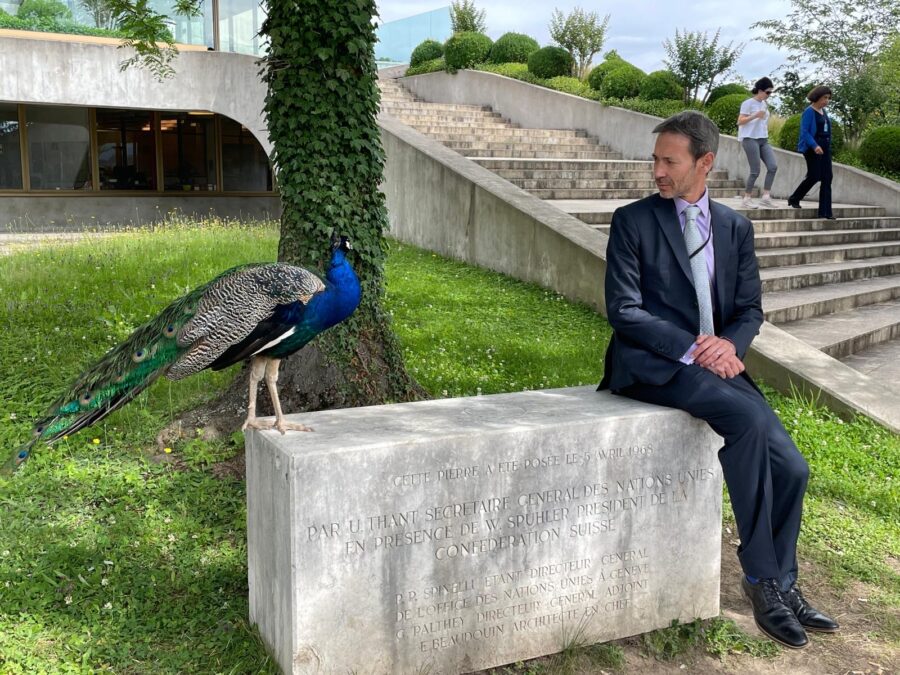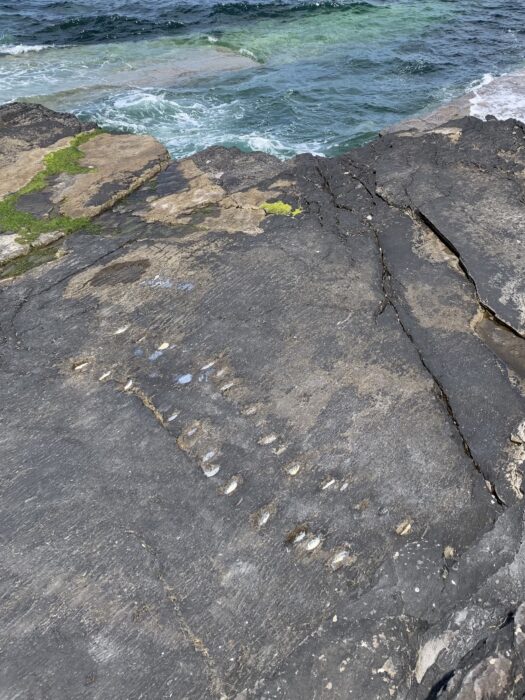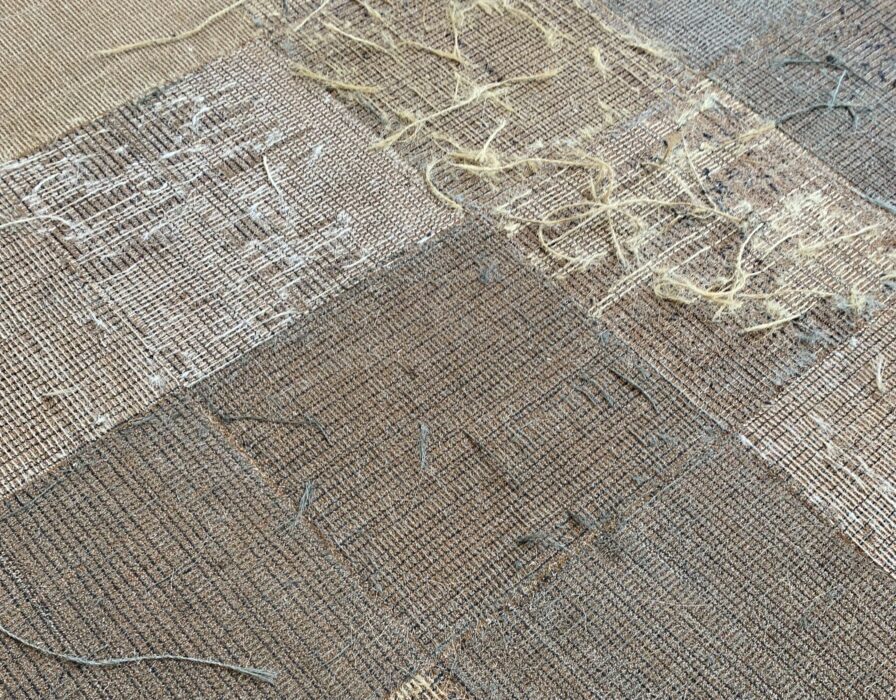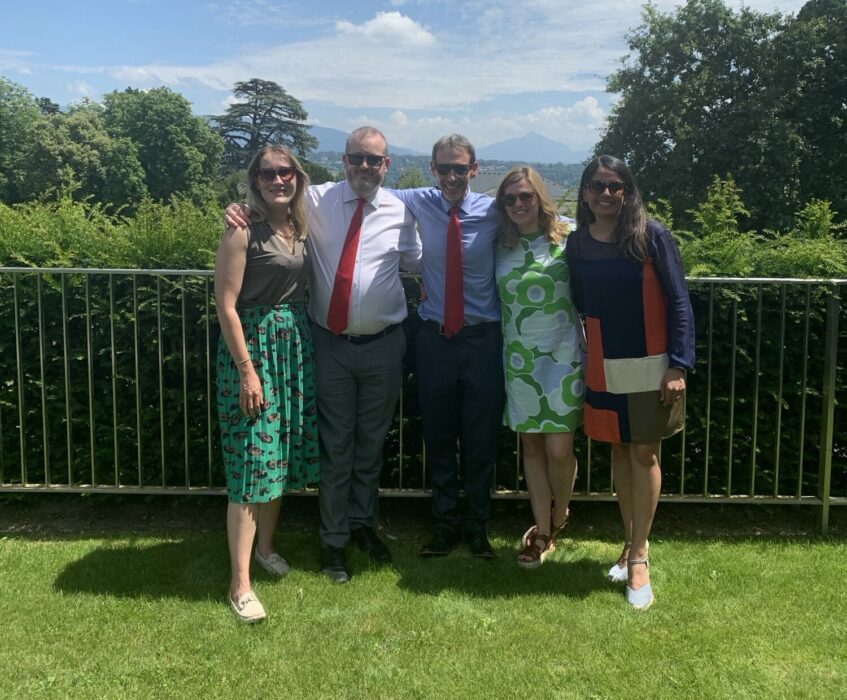25th July 2024 Geneva, Switzerland
Wearing thin

Among my blessings in life is having an Irish mother-in law and I’m just back from a post-Council trip where my wife did some digging into her family history. A good number of her relatives were refugees fleeing persecution in both Eastern and Central Europe from the late 19th Century. Ireland was where they were able to gain safe haven despite the huge problems and mass emigration Ireland was grappling with. As far-right nationalism attracts political support across Europe these days, it was a reminder of quite how recently so much of Europe was in thrall to extreme nationalism with devastating consequences. As we see time and again in our work at the Council, the scapegoating of minorities in any country is the clearest of warning signs that mass human rights violations may follow, and non-discrimination lies at the heart of upholding human rights.
While I was in Ireland I managed to reconnect with my own, slightly more distant ancient relatives. In my case this took the form of a 385 million-year-old tetrapod – the first animals to make the transition from sea life to land, at about roughly the same time I started working at the UK Mission. Its tracks are visible at the County Kerry coast, though at the time the creature moved out of the sea, this particular bit of Ireland was below the equator, and the UK Mission was still based near Varembé swimming pool.

When I booked to go, I was seeking a week of calm recovery after a month of Council stresses and hoping for a quiet period in world events. By the time I’d got back, England’s men had lost the Euro football final, one former US President had survived an assassination attempt and the serving one had decided not to run again. But none of this came close to preparing me for the drama of the 2024 All-Ireland hurling final. For those less familiar it’s an ancient game of quite staggering skill, involving sticks, a ball, and goals similar to both football and rugby. It’s played by amateurs for whichever county they come from and really represents everything sport should be about. It was nail-bitingly close until the final seconds when County Clare pipped Cork by a point. I’d adopted Cork for the day, mainly as I’d braved the fresh Cork sea a few days earlier, so I’m sorry I didn’t bring you better luck.
The last Council session had its own fair share of late drama too. Most of it centred around the OIC-led resolution on religious hatred. The OIC sought to build on a resolution adopted last year following an Urgent Debate called in response to incidents of Quran burning in Europe. Last year’s resolution ended up with an unfortunate vote and many had hoped that this year would see a return to the long-standing consensual framework for addressing religious intolerance which had held at the Council since 2011. Discussions proved difficult again but this time the OIC took a late decision to withdraw the resolution for the time being, rather than facing a vote. Hopefully this will provide an opportunity to find agreement on how to move forward – combating religious intolerance is a pressing problem of global importance, and one on which we should all make the extra effort needed to reach agreement.
Despite all the recent talk of getting the Council’s workload under control, resolutions on new issues seemed to be sprouting into existence from all corners with little forewarning. This probably reflects the fact that the Council is a rare part of the UN system that actually functions, and that states are keen to use it to generate attention for national priorities. This time there were interesting new resolutions on the rights of seafarers, preventing adolescent girls’ pregnancy, technology-facilitated gender-based violence, a new treaty on early childhood education, plastic pollution, child safety in the digital environment and on Human Rights Advisers. There were just as many, if not more, new joint statements this session too, which appear even more rapidly and are even harder to keep track of. Think of joint statements as the Council’s gateway drug. Joining in may seem harmless enough at the time, but something stronger probably won’t be long in coming.
But while the workload keeps on mounting, there’s still no money in the tin. The UN’s liquidity crisis has not gone away, and the impact is increasingly obvious. All of the UN’s human rights mechanisms – not just those in the Council – are having to make do with less. Many already survive with so little funding that they are close to breaking point and it’s all starting to feel quite desperate. The lack of cash is taking its toll on our physical surroundings too, and the worn through floor of the main coffee bar is starting to look like a metaphor for the whole system.

One of the saddest parts of this job is saying goodbye to colleagues and this was the last Council session for four stalwarts of the UK Human Rights team. Rita French, the UK’s first Human Rights Ambassador has blazed a trail in linking what happens in Geneva to human rights on the ground, while Matt Puttick – our resolute Africa lead – can be particularly proud of his work to monitor the grave situations in Sudan and South Sudan. Our fabulous legal adviser Lucinda Stallard leaves huge boots to fill, and our gender guru Charlotte Manson heads off to what I’m sure will be a glittering legal career after fighting the good but increasingly difficult fight on gender and women’s rights over recent years with grit and passion. Thank you all for your enormous contribution.

If you happen to be newly arrived in these parts, feel free to read this recently updated Council guide co-written by the marvellous Ben Lee and yours truly. For those who are about to go on holiday, I wish you safe and restful travels – the next session promises to be a bit of a monster. And if you don’t mind swimming in water that’s only slightly colder than a warm fridge, Ireland is wonderful this time of year.
Fantastic post, Bob. Particularly enjoyed your observation that while the UN’s liquidity crisis is pushing some mechanisms close to breaking point, the HRC remains “a rare part of the UN system that actually functions, and that states are keen to use… to generate attention for national priorities.” Well worth defending.